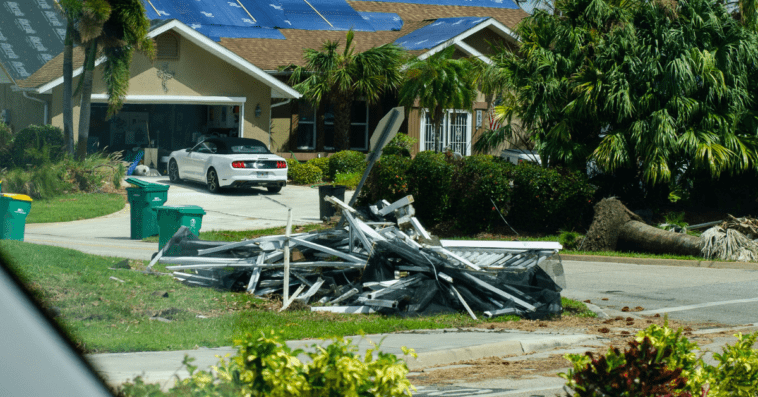For Floridian citizens, hurricane season is hardly surprising anymore. From June to November, the Sunshine State gets ready for the possible impact caused by strong storms. While preparing for storms normally involves safeguarding property, gathering supplies, and creating evacuation routes, one very crucial element is usually overlooked: financial readiness.
From temporary relocation to repair expenses, hurricanes can cause major financial pressure. Here we will go over feasible measures to navigate these obstacles and protect your financial stability.
Secure Comprehensive Home Insurance
One of the primary means of protection against expenses related to hurricanes is comprehensive home insurance. While a conventional homeowner’s policy often covers wind damage, flooding—a common outcome of storms—might not be. Given Florida’s propensity for storm surges and severe rain, one should make investments in separate flood insurance.
Though the National Flood Insurance Program (NFIP) covers flood-related damages, policies have a 30-day waiting period, which is why it is advisable to make arrangements ahead of time. Make sure that you review your insurance coverage regularly to make sure that it still covers risks associated with hurricanes.
Plus, you need to make sure that the limits fit the value of your property. Otherwise, you might fall short and would struggle in terms of paying for repair costs and necessary renovations. Pictures or videos can be really helpful when proving a claim since these enable you to record your belongings. In the event that a calamity strikes, the claims process will be easier to navigate.
Build an Emergency Savings Fund
An emergency savings fund is very important during hurricane season because there is a chance you might find yourself displaced due to a storm. With an emergency fund, you can cover expenses like temporary accommodation, food, and supplies. Even though it is advised to have at least three to six months’ worth of living expenses in savings, even having just a portion of this would be really helpful in an emergency.
However, many Floridians still find it difficult to establish enough savings. If you are experiencing this, you can start by cutting back on unnecessary expenses. Over time, you will notice your savings start to grow as long as you keep yourself financially disciplined.
Assess and Strengthen Your Home’s Resilience
Preventive steps to fortify your home against hurricane damage can save thousands of dollars in repairs. Easy actions like cutting trees close to your house, reinforcing garage doors, and storm shutter installation help to lower possible damage.
However, these improvements can have upfront expenses. Loans for bad credit could be a lifeline for homeowners with limited credit options. To make sure your house is better prepared for the next storm, these loans can help cover essential repairs or retrofitting expenditures. Before agreeing to any financing solution, be sure you research reliable lenders and understand the terms.
Plan for Post-Storm Repairs and Expenses
From structural problems to roof leaks, hurricanes sometimes leave major damage behind. The extent of the storm and the materials required determine how much it will cost to repair these damages. Following Hurricane Irma in 2017, for example, Florida residents had average repair costs running beyond $5,000.
Should your savings be insufficient, think about looking at government aid programs just like Small Business Administration (SBA) disaster loans or FEMA’s Individual Assistance grants. Certain community groups also offer volunteer work or cash assistance for post-storm recovery. Loans meant for those with less than ideal credit scores might also be a good choice for urgent restorations.
Explore Community Resources and Support
Florida communities are rich in tools meant to help their residents through hurricane season. Local government websites—including the Florida Division of Emergency Management—often include updates on shelters, disaster relief efforts, and recovery resources.
Like the American Red Cross, nonprofit groups also provide free assistance including meals, temporary shelter, and mental health support. Early connection with these services helps to reduce the burden of post-storm recovery.
Understand Your Financing Options
Some hurricane-related costs can be covered by emergency savings and insurance, but sometimes you need more money. People who own homes but have poor credit can find that loans for bad credit are an alternative to the typical mortgages they’ve been looking for. Loans like these are a great way for people with less-than-perfect credit to get the money they need for things like roof repairs or replacing damaged materials.
Wrapping Up
Florida’s hurricane season brings unique financial challenges, but you can minimize their impact with careful preparation and proactive measures. From securing comprehensive insurance and creating an emergency fund to looking at financing choices like loans for bad credit, there are several ways to help you navigate these difficult times. You just need to make sure you plan ahead, especially one hurricane season is fast approaching.








Comments